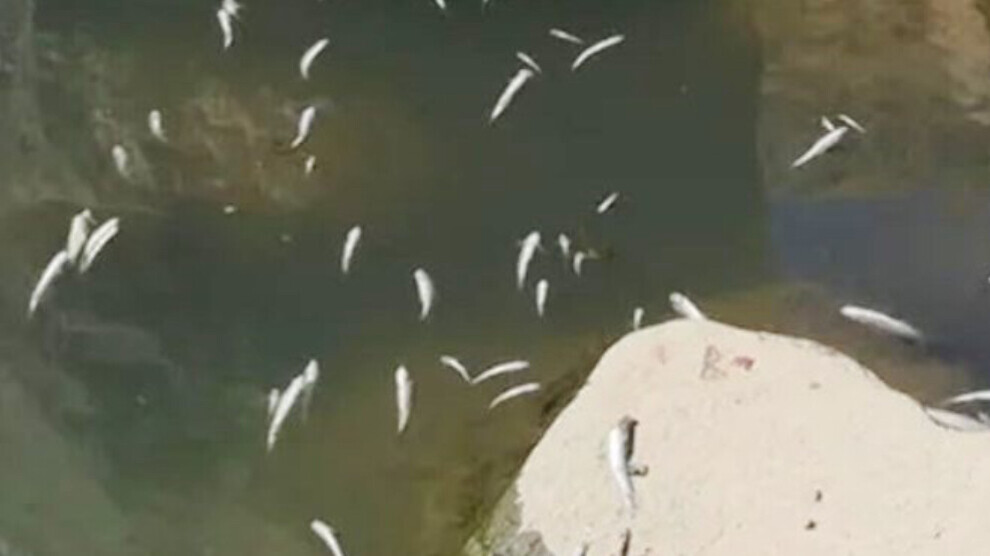Zîlan River is being poisoned
Due to the dams, marble quarries and mines, the North Kurdish Zîlan River has become an ecological death zone. Mir Bahattin Demir from the Zîlan Ecology Platform reports high concentrations of heavy metals.
Due to the dams, marble quarries and mines, the North Kurdish Zîlan River has become an ecological death zone. Mir Bahattin Demir from the Zîlan Ecology Platform reports high concentrations of heavy metals.

The Zîlan Gorge in the North Kurdish province of Van was once a region of wild beauty and many endemic plant and animal species. Today, many areas resemble an ecological dead zone and, in particular, the Zîlan River, with its unique fish population, is being poisoned.
Zîlan, in the focus of destruction for almost a hundred years
The Zîlan Gorge is not only of huge ecological importance (it is, for example, a spawning ground for pearl mullet), which is only found in Lake Van, but is also of great historical importance. The region was one of the areas with a very strong Kurdish identity. Because of this, it was repeatedly attacked by the Turkish state.
In 1930, thousands of Kurds were murdered by the Turkish state in the Zîlan valley massacre. The surviving villagers were expelled. The areas occupied by the displaced population were then used by the state for factory farming. In the 1980s, the demographics were further changed by the targeted settlement of Kyrgyz people in the evacuated villages. Since then, new dams, mines and quarries have been built in the region. The cultural memory and the ecology of the region suffer severe damage.
The Zîlan River and its tributaries, once famous for their clear and clean water, are now contaminated by poison and garbage. Sediments from mining silt up the rivers. At the same time, the level of the rivers dropped rapidly due to the dams. Countless creatures have died as a result of the valley drying up, water receding and poisoning.
"Poisoning leads to mass deaths of fish"
The spokesman for the ecology platform Zîlan, Mir Bahattin Demir, said that such an ecological catastrophe can hardly be put into words. Zîlan is the largest tributary of Lake Van. The pollution by heavy metals is due to mining activities carried out on the river, but at the same time, untreated sewage from the villages is also contaminating the water. In addition to these negative aspects, Demir noted that the Regional Directorate for State Hydraulic Engineering Works (DSI) has altered the natural structure of the streams and rivers under the slogan "water sanitation".
Demir said: "As a result of the deterioration of the water quality caused by the Koçköprü dam and the power plant built with the reservoir previously built in the Zîlan valley, as well as the lack of oxygen, there is an algal problem in the water. Although we informed the authorities in writing about the catastrophic results of our water analysis, nothing happened. This is how the mass extinction of fish and other living things that we had predicted occurred. Scientific studies of the fauna and flora in Zîlan by Ankara University revealed that there is a diversity of 430 species of plants and numerous species are endemic. Three new endemic species have been discovered. In view of the destruction of the habitats of salamanders and otters, we expect that the decision of the Council of State, which has granted our applications, and the three lawsuits we submitted to the 1st Administrative Court of Van, will result in positive decisions for nature and our common habitats will lead."